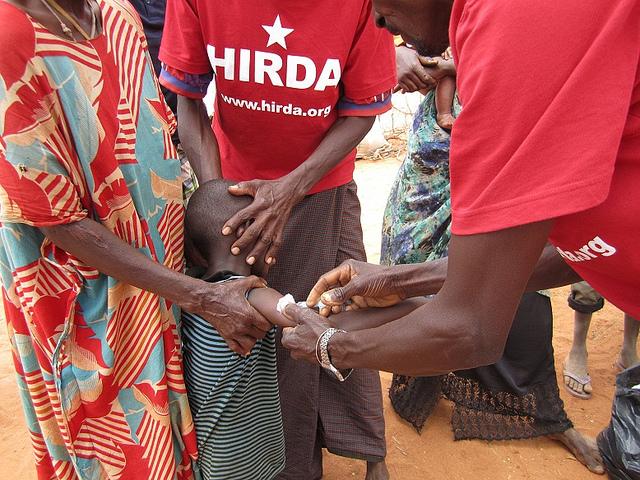Against the backdrop of a drought and outbreaks of cholera and measles in Somalia, the World Health Organization (WHO) and the country's health ministry today issued an urgent call for $6.8 million to step up the response and vaccinate 4.2 million children in November.
In a press release today, the WHO said 2 years of scarce rainfall and poor harvests have led to drought, food shortages, and lack of clean water and sanitations, conditions that fuel infectious disease outbreaks.
Somalia is one of the countries in the Horn of Africa and Gulf of Aden regions in Africa experiencing cholera outbreaks.
Cholera pace slows, but still tops 10,000 cases per month
Ghulam Popal, MD, the WHO's representative in Somalia, said in a statement of the country's cholera and measles outbreaks, "Normally, these diseases are easy to treat and prevent, but they can turn deadly when people are living in overcrowded spaces and are too weak to fight off infection."
The current cholera outbreak in Somalia is the country's largest outbreak in 5 years, and more than 57,000 cases, 809 of them fatal, have been reported as of Jul 31. The WHO and its partners set up cholera treatment centers and have helped support water and sanitation efforts, and in March the groups rolled out Somalia's first oral cholera vaccination campaign, which reached 450,000 vulnerable people.
The efforts have cut Somalia's monthly number of cholera cases from 13,656 in May to 11,228 cases in June, the WHO said.
First measles vaccination round didn't contain spread
Regarding measles, the country is grappling with its worst outbreak in 4 years, with more than 14,823 suspected cases reported this year as of Jul 31. For comparison, since 2014 Somalia averages about 5,000 to 10,000 measles cases a year. The WHO said the situation is critical for millions of children who are undervaccinated, weak, and hungry, making them more susceptible to measles and other diseases. In the current measles outbreak, more than 80% are children younger than 10 years old.
Earlier this year the WHO, partners, and Somali health workers vaccinated 600,000 children under age 5 in tough-to-reach and measles hot spot areas, but the disease continues to spread, made worse by the pre-famine conditions, population displacement, poor nutrition, and unhygienic settings.
The WHO said the next vaccination campaign slated for November is designed to stop transmission by ramping up routine immunization and reaching unvaccinated children.
Of the $14.4 million cost to conduct the next measles vaccination campaign, the WHO has put out a call for $6.8 million, and so far no funds have been received.
See also:
Aug 16 WHO press release





















